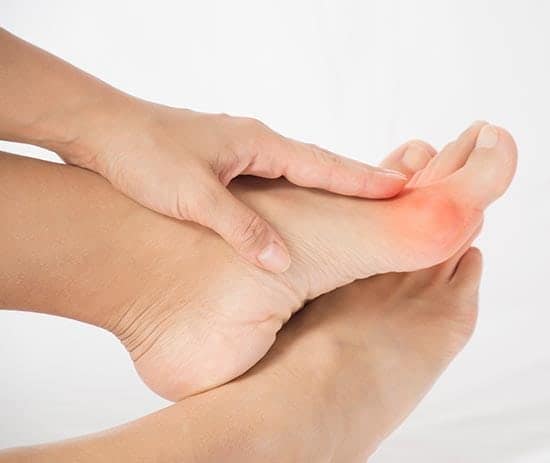How Bunion Foot Pain Treatment Improves Your Life

When bunions crop up, it’s time to take action. The longer you wait to start bunion foot pain treatment, the more severe the bunion will become as it’s a progressive condition. Learn about the common causes of bunions and how the clinicians at Twin Rivers Podiatry Easton can help
Facts About Bunions
Bunions (also called hallux valgus) form when the tissue or bone at the base of the big toe shifts out of place. They may be large or small, but the bigger they get, the more they interfere with mobility and daily life. If you have bunions, there are some things you need to know:
- Causes — Heredity and choice of shoes, such as those that are smaller or narrower than needed, contribute to the development of bunions.
- Populations at risk — Women are more likely to develop bunions, but men also get them. People who spend a lot of time walking or on their feet, such as nurses or waitresses, are also susceptible to bunion development.
- Foot shape matters — Defined by heredity, your foot shape and bone structure can increase your risk of developing a bunion. Individuals with low arches, flat feet or loose joints are more susceptible to bunions.
Bunion pain can be severe, but there is hope. The team at Twin Rivers Podiatry Easton offers effective bunion foot pain treatment designed to relieve your discomfort and prevent the condition from becoming worse.
Non-Invasive Foot Pain Treatment Options For Bunions
Multiple issues can stem from an untreated bunion, including bent toes, corns, ingrown toenails and calluses. As bunions become more severe, pain begins to radiate from the toe to the ball of the foot as you shift your weight onto smaller toes. Without treatment, it can become difficult for you to walk at all.
Some individuals find that changing their shoe type to one with more support and a wider shape helps reduce friction and slow the process of bunion growth. For others, topical foot pain treatment, like ice packs, provides temporary relief. Once a bunion begins to significantly interfere with mobility, surgery is the next step.
Foot Pain Treatment With Surgery
For moderate to severe bunions, surgery is recommended as the most successful foot pain treatment. Surgery involves cutting away the bony excess of the metatarsal (toe bone) and realigning it. If you have a severe bunion, recovery usually takes up to 12 weeks. It’s best to discuss surgery with your podiatrist to determine if you are a good candidate for this procedure.
Experience Relief From Foot Pain
If you’re suffering from one or more bunions, don’t wait to seek help. Get relief from painful bunions when you consult with a knowledgeable podiatrist about foot pain treatment. Contact the clinical team at Twin Rivers Podiatry Easton today to schedule an appointment by calling (610) 253-2251.
